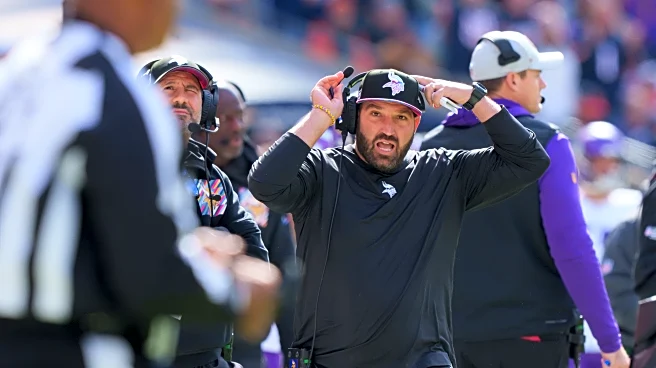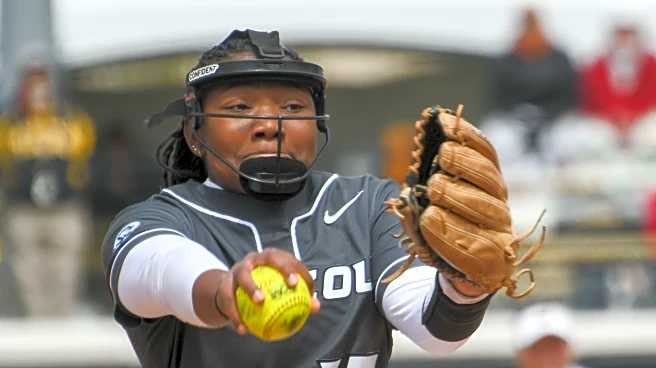What's Happening?
Steve Nash, a Basketball Hall of Fame guard, recently shared insights into his decision to retire from the NBA, attributing it in part to a preseason game against Stephen Curry and the Golden State Warriors.
During an appearance on the 'Mind the Game' podcast, Nash recounted a game on October 12, 2014, where Curry's performance was a pivotal moment in his decision-making process. The Warriors dominated the game, scoring 39 points in the first quarter, with Curry contributing significantly through assists and scoring, including a four-point play after a foul by Nash. This game was a precursor to Nash's final season, which he ultimately did not play due to injuries. Nash's career spanned 18 seasons, during which he earned two NBA MVP awards and was named to eight All-Star Games. His career was marred by injuries, particularly during his time with the Los Angeles Lakers, where he suffered a significant knee injury and chronic back issues.
Why It's Important?
Nash's reflections highlight the impact of emerging talent on veteran players' career decisions. Stephen Curry's rise as a dominant force in the NBA exemplifies the changing dynamics within the league, where younger players can influence the trajectory of seasoned athletes. Nash's decision underscores the physical and mental challenges faced by athletes nearing the end of their careers, especially when confronted with the prowess of younger competitors. This narrative also sheds light on the broader implications of player health and longevity in professional sports, emphasizing the need for effective injury management and career planning. Nash's story resonates with many athletes who must navigate the transition from active competition to retirement, often influenced by the evolving landscape of their sport.
What's Next?
While Nash has retired from playing, his insights and experiences continue to influence the basketball community. As a former player and coach, Nash's perspectives on player development and career transitions are valuable for current and future athletes. The NBA, teams, and player associations may consider these narratives when developing support systems for athletes transitioning out of active play. Additionally, Nash's reflections may inspire discussions on the role of mentorship and guidance for retiring athletes, ensuring they have the resources and support needed to navigate post-retirement life successfully.
Beyond the Headlines
Nash's story also touches on the cultural and psychological aspects of retirement in sports. The decision to retire is not solely based on physical capability but also involves mental readiness and acceptance of a new life phase. This transition can be challenging, as athletes often identify strongly with their sport. Nash's experience highlights the importance of preparing athletes for life beyond the court, including mental health support and career counseling. Furthermore, his reflections on Curry's influence illustrate the cyclical nature of sports, where new talent continually reshapes the competitive landscape, prompting veterans to reassess their roles and contributions.











